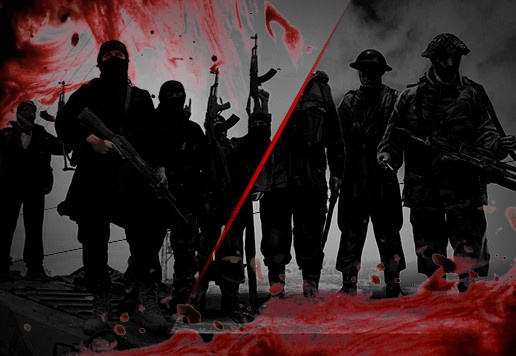What Defines Terrorism? The Identity of the Victim or that of the Victimizer?

Dr. Azmi Bishara
Creating Two Alleged Camps
No great analytical effort is required to illustrate the widespread use of the terms “terrorism” and “counterterrorism” in today’s world. These terms dominate every major news broadcast and international summit. Various states around the world have prioritized combatting terrorism to the point where they use “counterterrorism” as a determining factor of their international relations, at least ostensibly. Today, “terrorism” is bandied about as a catch-all to prop up demagoguery and advance political platforms in electoral democracies while it is used to justify government suppression by non-democratic regimes.
The outcome of this unexamined, passive acceptance of these terms as they appear in literature is their instrumentalist use to smear political opponents. Like a talisman, “terrorism” is an accusation that can be employed to silence political opposition. In one fell swoop, the accused is designated as a target for the “war on terror”, a conflict with no defined enemy, aims or objectives typical in war. Countries and political movements across the globe have given up on trying to explain these difficulties. Instead, they capitulate and try to demonstrate to the leader of the “war on terror”— generally, the United States—that they are meeting its standards. For its part, the United States has been able to transform the mantra of “counterterrorism”, with all the implicit premises and the myths surrounding it into its own doctrine.
Perhaps the most problematic aspects of the “War on Terror” are connected to its ambiguity: unbounded by space and time, and with an ill-defined enemy, the “War on Terror” is an oxymoron. Even the supposed ringleaders of this effort do not take it seriously, and never actually hold the “War on Terror” accountable to the norms which define the rules of engagement in a conventional war. Some of the norms that have been jettisoned include the avoidance of indiscriminate shelling of cities and the appropriate treatment of prisoners of war. Instead, the captives taken in the war on terror are vilified more than any other criminal. Yet, the problematic aspects of this war go further. In fact, the war on terror is inherently counterproductive and self-sustaining: for every terrorist it eliminates, a new crop of terrorists is sown.
To read the rest of the full text, please click here